Speakers
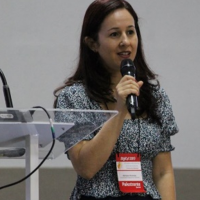
Adriane Elisabete Antunes de Moraes was Graduated in Nutrition, Master in Scienceand Agroindustrial Technology, Doctorate in Food and Nutrition from the University of Campinas and Post-Doctorate at the Ital Food Technology Institute. She is currently a PhD professor at the School of Applied Sciences at UNICAMP in the Nutrition course and accredited to the Pos-Graduate Program in Nutrition Sciences, Sports and Metabolism (CNEM). She has more than 70 articles published in the areas of pre and probiotics, functional product development, food safety and health. Her papers havebeen cited more tham 1700 times. Responsible for the laboratory Dairy, Probiotics and Prebiotics (LLPP) listed at the Faculty of Applied Sciences at UNICAMP. For more information: https://www.scopus.com/authid/detail.uri?authorId=8666782100.

Prof. Alexander N. Suvorov was graduated from the First Medical Institute, Saint Petersburg, Russia in 1979 as a General Physician. Post- graduation training was in Jena University, Germany, Trinity College, Ireland, Leiden University The Netherlands, Oklahoma University, USA, Minnesota University, USA. In 1979 started working in the Institute of Experimental Medicine where he works presently as head of the Department of Molecular microbiology. In 2012 he organized a Department of Fundamental Medicine in Saint Petersburg State University where he teaches Microbiology. Main scientific interests are bacterial genome, virulence factors of pathogenic bacteria, vaccine development, probiotics and personalized microbial therapy.

Ana Lúcia Barretto Penna has been an Associate Professor in the Department of Food Engineering and Technology (DETA) at the Instituto de Biociências, Letras e Ciências Exatas (IBILCE), São Paulo State University (UNESP), Brazil, since 1995. Her main research projects focus on fermented and functional dairy products which include Characterization and application of lactic acid bacteria (LAB) as well as probiotics in food products; Production of antimicrobial compounds by LAB and their application in food processing, and Utilization of fruit byproducts as bioactive sources to develop innovative functional products. For more information about Prof. Penna’s research, please visit her Scopus profile (https://www.scopus.com/authid/detail.uri?authorId=7006913368).

Prof. Dr. Andre Luis Lacerda Bachi has a degree in Biological Sciences from the Methodist University of São Paulo (2001), in addition to a Master’s (2004) and PhD (2009) in Health Sciences from the Graduate Program in Microbiology and Immunology of the Federal University of São Paulo UNIFESP. Dr. Bachi was a Visiting Professor at UNIFESP (Federal University of São Paulo) and currently is a postgraduate Professor at Santo Amaro University – UNISA, developing research projects in the area of basic and clinical immunology, e.g. related to the effects of regular physical exercise important in the prevention of upper airway diseases, in athletes as well as in the older adults. These studies, both using experimental models as well as clinical studies, investigate, amongst others, the effect of food supplements that are thought to modulate the immune/inflammatory responses, such as glutamine, omega-3 and omega-6 fatty acids, and probiotics, particularly the Lactobacillus casei Shirota. Dr. Bachi’s main interest is in the mechanisms of inflammatory responses, with an emphasis on a better understanding of the roles of cells and molecules produced after the activation of the immune system (antibodies, pro- or anti-inflammatory cytokines, regulatory cytokines, oxidative metabolism, with e.g. the role of low-weight lipoprotein (LDL) oxidation and antioxidant mechanisms). For more information regarding Bachi’s research, you can check at: https://www.scopus.com/authid/detail.uri?authorId=35336131100
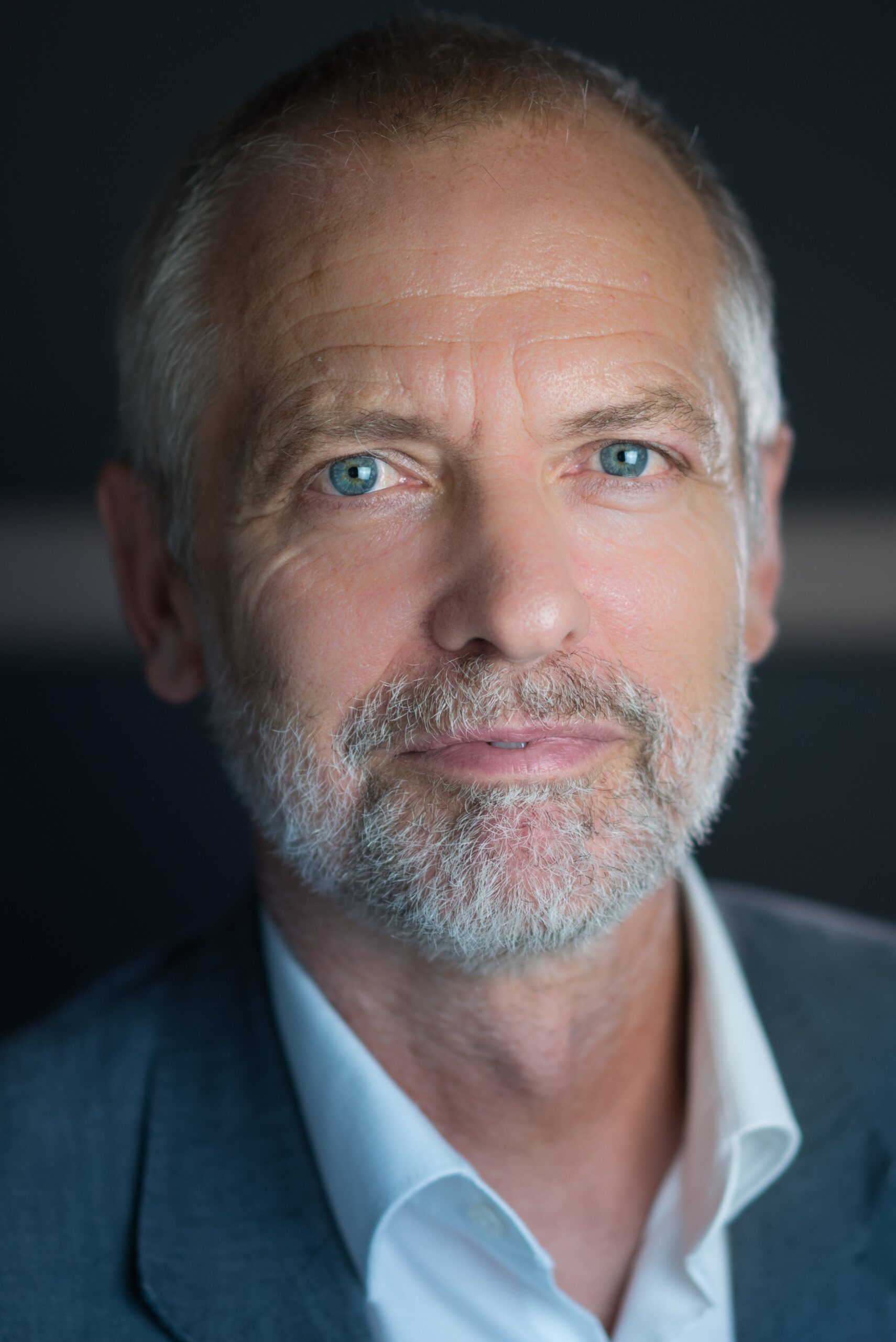
Bruno Pot made a PhD in microbiology at the University of Gent, Belgium. In subsequent postdocs he performed research on lactic acid bacteria. In 1997 he joined the science department of the company Yakult as science manager Benelux. He worked as Research Director at the Institut Pasteur in Lille, France, from 2001 till 2016. During that time he was also Director of Business Development at the bioinformatics company Applied Maths NV and Food Microbiology Professor at the Vrije Universiteit Brussel. His major research topics have been bioinformatics, lactic acid bacteria, probiotics, bacteria-host interaction and health claim substantiation. Since November 2016 Bruno is back with Yakult as Science Director for Europe. Bruno Pot is member of the Taxonomic Subcommittee for Lactobacillus, Bifidobacterium and related taxa, former ISAPP Board member, former president of the Pharmabiotic Research Institute (PRI; currently VP), Narbonne, France, Board member of LABIP and Chair of the Board of ILSI-EU. He authored or co-authored >250 articles and >20 book chapters. More details on https://www.researchgate.net/profile/Bruno-Pot.

Célia Lúcia de Luces Fortes Ferreira has a degree in Domestic Sciences from the Federal University of Viçosa (1969), a master’s degree in food science from the University of Wisconsin – Madison (1977) and a PhD in Food Science from Oklahoma State University (1986). Member of the Gamma Sigma Delta Honor Society (1985). Training in Biotechnology: Microbial principles and processes for fuels, chemicals and ingredients (1983) and Fermentation Technology (1984) at the Massachusetts Institute of Technology (MIT), Cambridge (USA); Visiting Professor (CAPES scholarship), University of Wisconsin, Madison (Postdoctoral) in anaerobic microbiology, with emphasis on Clostridium difficile and Bifidobacterium, Food Research Institute, UW, Madison (1994/1995). Visiting Professor (CAPES scholarship holder) at the Functional Foods Forum, University of Turku, Finland, (2009/2010), (Postdoctorate) in clinical evaluations in the area of probiotics, and consulting specialist in the formation of a basis for terminology in functional foods, prebiotics, probiotics, symbiotics and health claims. He is currently a full professor at the Federal University of Viçosa. He has experience in the area of Food Science and Technology, with an emphasis on Food Microbiology, working mainly on the following topics: probiotics, prebiotics, symbiotics, functional foods, fermented dairy products with an emphasis on milk, dairy drinks and artisanal cheeses, bifidabacteria, propionic bacteria, Lactobacillus acidophilus, isolation of lactic acid bacteria, human milk microbiota, development of new products. Maintains a bank of cultures of industrial interest, coordinator of the Safety and Hygiene subcommittee of the Brazilian Committee of FIL-IDF, as of February 2019. UFVCC Culture Collection, Federal University of Viçosa, Minas Gerais Collaborator of the CNPq Food Technology research group-UFSC.

CLENIO NAILTO PILLON is an agricultural engineer, graduated from the Federal University of Santa Maria/RS, with a master’s degree in Soils from the same University. He has a PhD in Soil Science from the Federal University of Rio Grande do Sul. He began his professional career in the private sector as a technician and manager. In 1999, he joined Embrapa as a researcher. He began his activities at Embrapa Swine and Poultry in Concórdia / SC and subsequently, at Embrapa Clima Temperado in Pelotas / RS where he was Deputy Head of R & D and General Head. He is currently the Executive Director of Research and Innovation at Embrapa and, among other emerging high-impact agendas in PD & I, he inaugurated the Single Health Program within the scope of the Embrapa Management System, in partnership with several national and international institutions. He is a permanent member of the Postgraduate program in territorial development and agro-industrial systems at the Federal University of Pelotas.

Djamel Drider holds a PhD in Food Science with a focus on microbiology, biochemistry and microgenetics from the Institut Agro Montpellier (1993). He then completed postdoctoral training at the Centro de Investigaciones Biologicas del CSIC (Madrid, Spain) and at the Mount Sinai School of Medicine (New-York, USA). During his postdoctoral training, Dr. Drider acquired a solid experience in molecular microbiology. He first studied the regulation of genes involved in citrate uptake in lactic acid bacteria (Spain) and the regulation of genes involved in antibiotic resistance in Staphylococcus aureus/B. subtilis. In 2002, he was recruited as Associate Professor of Microbiology at the Nantes-Atlantic College of Veterinary Medicine, Food Science and Engineering, and in 2011 he moved to the University of Lille as Full Professor of Microbiology, where he developed and is developing intensive research on bacteriocins for academic and applied purposes.
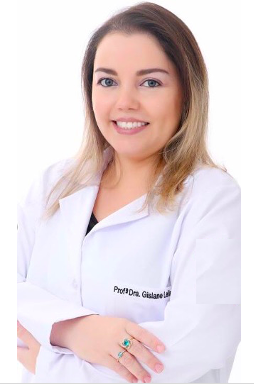
Gislane Lelis Vilela de Oliveira received her Ph.D. in Basic and Applied Immunology from the University of São Paulo (FMRP-USP), Brazil. She worked as Postdoctoral Research Fellow at Brigham and Women’s Hospital (Harvard Medical School), United States. Currently, she is an Assistant Professor at the Institute of Biosciences, Sao Paulo State University (UNESP), Sao Paulo, Brazil. His research interests include the microbiota-mucosal immune system axis; Dysbiosis and intestinal permeability in chronic inflammatory diseases; Effects of probiotics on immune system cells. For more information regarding Oliveira’s research, you can check at https://www.scopus.com/authid/detail.uri?authorId=56522526200

Degree in Human Nutrition, University of Costa Rica; MSc in Human Nutrition, Minnesota University’; Master´s in Project Management, University for International Cooperation; Certified in Project Management with emphasis on Sustainability by GMP
Actual position: Executive Director of the International Life Sciences Institute Mesoamerica for its acronym in English, ILSI Mesoamerica a subsidiary of ILSI Global.
We are responsible for the management of the entity and the project manager of the scientific program for the region that integrates Mexico, Central America, and the Caribbean.
Work experience: Consultant in Nutrition, intervention, and nutritional therapy. Nutrisport Clinic specializes in diagnosis and therapy of metabolic diseases.
• University of Costa Rica: undergraduate and postgraduate professor, researcher, and director of undergraduate thesis.
• National University: undergraduate and graduate professor, associate researcher, member of the Exercise Physiology Laboratory.
• Nutritionist of the National Soccer Team World Championships in Korea-Japan 2002 and Germany 2006
• Associate writer for magazines and written press.
• Member of Food and Health SA, nutrition, and food advisers.
• President of the Nutrition National Association of Costa Rica 2009-2013.
• Executive Director of ILSI Mesoamerica from May 27, 2014, to date. Ten years doing public and private relationships – join projects.
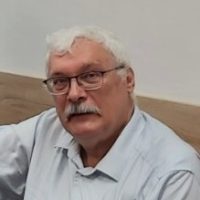
Ilyin Viacheslav Konstantinovich is a professor of the Institute for Biomedical Problems, Moscow, Russia. His interests include:Microbiome of Humans in artificial environment – spaceflights, saturation diving, etc. ways of prophylaxis of microbial risks using probiotics, (mainly autoprobiotics), prebiotics, including postbiotics, particularly in content of food products. Bacteriocinseffectiveness for skin microbial disorders prophylaxis: astrobiology – exposure of extremophiles in outer space and studies of influence; biotechnological processes in spaceflight conditions – fermentation of cellulose, bioelectricity. (https://orcid.org/0000-0003-3896-5003),),
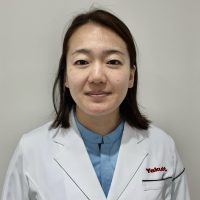
Kana Yahagi is an associate senior researcher at Gastrointestinal Symbiosis Research Laboratory, Basic Research Department, Yakult Central Institute, Tokyo, JAPAN. She graduated from a Master’s course at the Graduate School of Biostudies at Kyoto University. She joined the Yakult Central Institute in 2008 and worked on classification and identification methods for lactic acid bacteria. Her current research focuses on infant gut microbiota and health, specifically on the substrate utilization of bifidobacteria and their metabolites in the infant gut. For more information regarding Yahagi’s research, you can check at https://orcid.org/0000-0001-9647-2552.
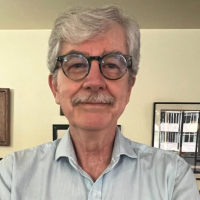
Mauro Vaisberg is a doctor and postgraduate advisor at the Federal University of São Paulo, where he develops research for the line “Inflammation of the athlete’s airways”. He earned his doctorate in Rehabilitation and his master’s degree in Immunology. He is the author of a large number of scientific articles and has published three books on health and exercise. For more information, visit http://lattes.cnpq.br/3009013165831084
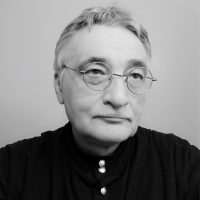
Dr. Michael Leonidas Chikindas is a Professor in Microbiology, leading the Health Promoting Naturals Laboratory at the School of Environmental and Biological Sciences (Rutgers, The State University of New Jersey). He co-authored several patents, more than a hundred papers and six book chapters. Dr. Chikindas developed and implemented several courses at Rutgers, including Food Microbiology (lectures and lab courses) and Beneficial Microbes in Food and Life. He is co-teaching the graduate-level course Food Biology Fundamentals. Dr. Chikindas is an applied microbiologist studying natural-derived antimicrobials and probiotics for use in human health, personal care, and agricultural applications. His external funding stems from private industries/organizations such as the Bill & Melinda Gates Foundation and governmental agencies such as NIH, USDA, NSF, etc. He serves on Editorial Boards of Applied and Environmental Microbiology, Annals of Microbiology, and Beneficial Microbes (Section Editor). Dr. Chikindas was a founder of Probiotics and Antimicrobial Proteins, the Springer Nature journal, and served as its Editor-in-Chief for twelve consecutive years. He served on the Editorial Boards of Letters in Applied Microbiology and the Journal of Applied Microbiology (also as the journal’s Senior Editor) for twenty-five years.

Nadiya Boyko (F), Rector Advisor for Innovation, Professor, Dr.Sc. Microbiology, Head of the Department of Medical and Biological Disciplines, P.I. of Research Development and Educational Centre of Molecular Microbiology and Mucosal Immunology. 35 years’ experience in bioeconomy, food and health relevant fields, mainly dealing with food safety, human nutrition and human microbiome, individual nutrition needs, FCDB, and impact of food on human host. She is a lecturer for native and foreign (English) speaking students, supervising PhD students, regularly acting as invited lecturer for the variety of international and national meetings, and master classes. She is intensive participant with oral presentations, discussions, debates, etc. in health and food relevant EU and other countries leader associations’ workshops, congresses, committees, Board Member for Global Harmonization Initiative https://www.globalharmonization.net/leadership; Head of Institutional Member of EPMA from UzhNU – http://www.epmanet.eu/. P.I. in around 50 projects, the author of about 300 scientific works, including 100 papers in professional scientific journals, more than 50 publications in the pier revived journals, and Chapter in Elsevier press, index H=15. Specialist with expertise in life sciences participated in international projects like BaSeFood, JSO-ERA EU – FP7, CAPINFOOD (SEE), BacFoodNet (COST), ODiN (FP7), FoodWARD (Erasmus), H2020 (SKIN), EIT Skill2Scale projects.
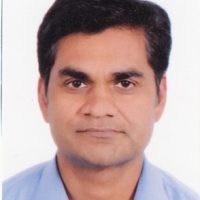
Dr. Santosh Kumar Tiwari is presently working as Professor of Microbial Genetics in the Department of Genetics, Maharshi Dayanand University, Rohtak, Haryana, India. Dr. Tiwari completed his PhD from Delhi University and moved to Rutgers University, USA to study advanced techniques for mode of action of bacteriocins against target bacteria as a part of the Indo-US programme. He was visiting fellow at Monash University, Australia to understand the structure-function relationship of bacteriocins. Thereafter, he has been continuously engaged in teaching and research for the last 22 years. For his outstanding teaching, he was recently awarded Best Teacher Award by Microbiologist Society, India. For his research contribution, he was awarded the Young Scientist award by the Department of Science and Technology, New Delhi. His major thrust area of research is to develop bacteriocins of probiotic lactic acid bacteria as therapeutic agents for the treatment of human and animal diseases. His research work has been recognized at national and international level and published in several international journals of repute such as Biotechnology Advances, Applied and Environmental Microbiology, Frontiers in Microbiology, Journal of Applied Microbiology etc. He has completed ten major research projects and has a vast understanding of bacteriocins of probiotic lactic acid bacteria.
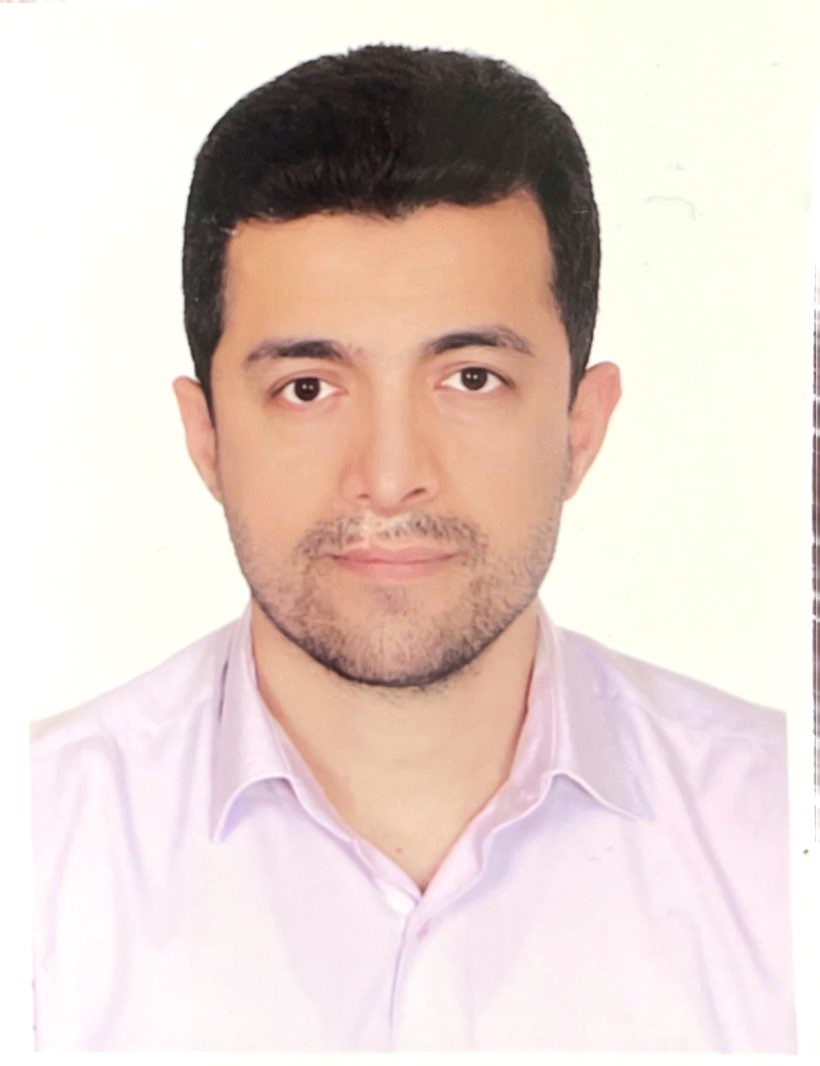
Dr. Seyed Hossein Hoseinifar is currently working as an Associate Professor in the Department of Fisheries at Gorgan University of Agricultural Sciences and Natural Resources Gorgān, Golstan, Iran, as well as an Adjunct Professor at Chiang Mai University (Thailand) since 2017. He is also working as an invited visiting professor at Università Politecnica delle Marche (Italy). He has authored more than 300 peer-reviewed journal articles. Also, he wrote six book chapters and recently published a book (by Springer) on sustainable tilapia aquaculture. His main research interest is on functional feed addtives and their possible effects on fish physiology and immunology. Since 2007, he has done many research projects regarding functional feed additives (especially prebiotics, synbiotics, host-associated and terrestrial probiotics). This area of research includes a vast area of studies on the isolation of indigenous probiotics, evaluation of optimum prebiotics as well as the introduction of synbiotic feed additives. Also, the evaluation of the intestinal microbiota composition to find the best alternative for the modulation of microbial balance toward potential beneficial communities is of interes
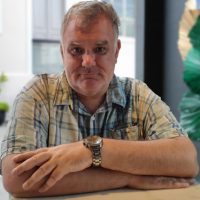
Svetoslav Todorov is a professor at the Faculty of Pharmaceutical Sciences, University of Sao Paulo, Sao Paulo, Brazil. His research interests include Molecular taxonomy of lactic acid bacteria isolated from fermented foods; Characterization of bacteriocins produced by lactic acid bacteria and Bacillus spp.; Purification of polypeptides and small proteins; Probiotic lactic acid bacteria and Bacillus spp.; Postbiotics; Physiology and biochemistry of lactic acid bacteria; Medical application of the bacteriocins produced by lactic acid bacteriaand Bacillus spp. For more information regarding Todorov’s research, you can check at https://www.scopus.com/authid/detail.uri?authorId=7005217476.
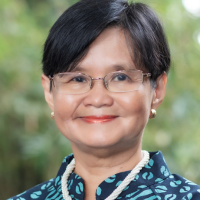
Ingrid Suryanti Surono is Professor in Functional Foods at Food Technology Department, BINUS University, Jakarta, Indonesia. She served as Head of the Food Technology Department, BINUS University, for over 7 years. She was previously lecturer and researcher at SEAMEO RECFON, and head of PhD Program in Community Nutrition, Faculty of Medicine, University of Indonesia-SEAMEO RECFON. Prof Surono currently serves as President of the Indonesian Scientific Society for Probiotics and Prebiotics (ISSPP), and in the Advisory Council of Swedish South Asian Network on Fermented Foods. She has published more than 100 papers in reputable journals, with scopus h-index 22. She has presented in several conferences, received awards and has a patent on probiotic to her name. Her research interests include probiotic and functional foods, traditional fermented foods, food microbiology, diet and nutrition, and human microbiome. Prof Surono obtained her PhD from The United Graduate School of Agricultural Sciences, Gifu University, Japan, in 1996.
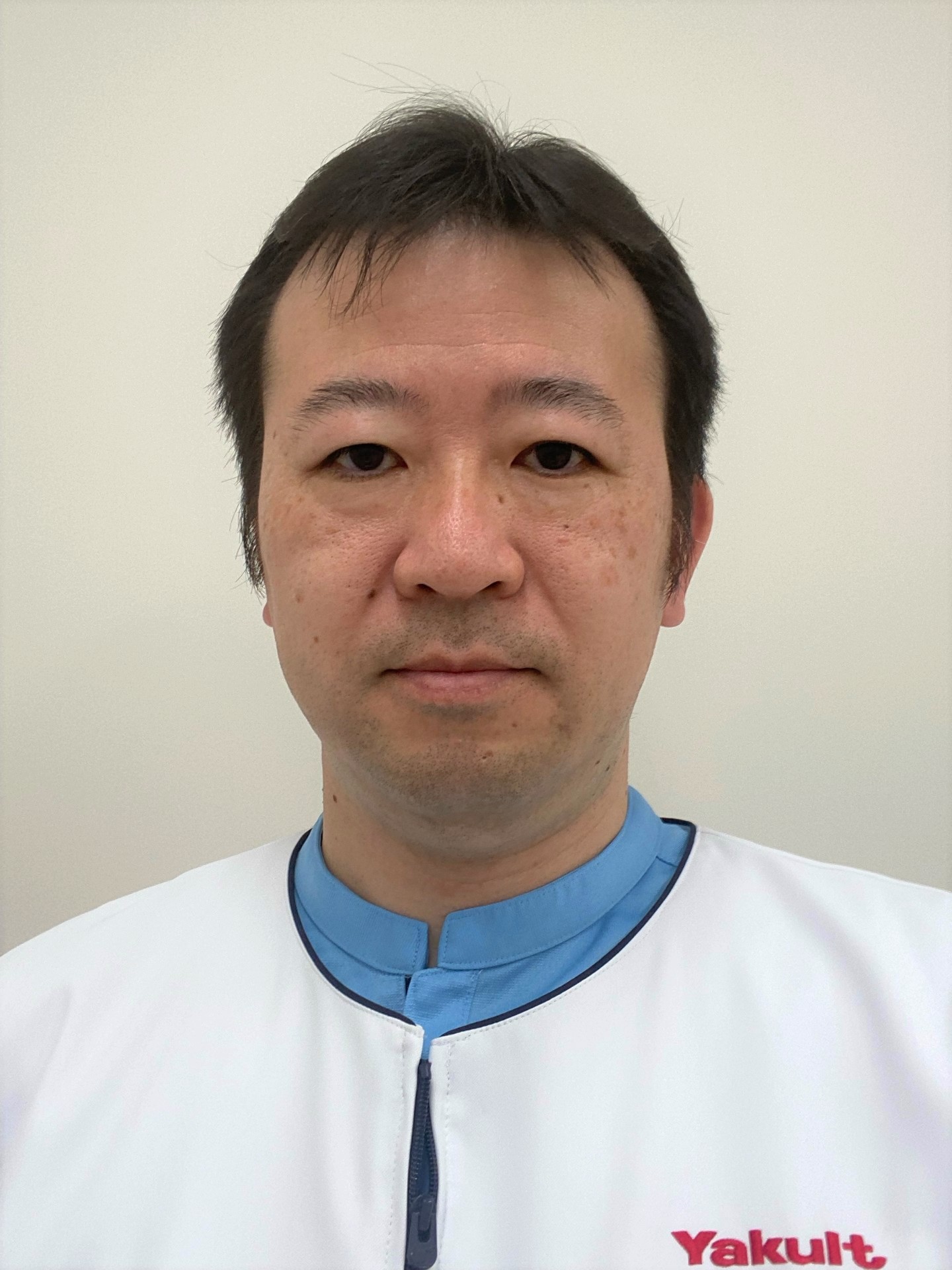
Tatsuichiro Shima completed his master’s degree at the Graduate School of Pharmaceutical Sciences, University of Shizuoka (Japan). After spending 3 years at the National Center for Global Health and Medicine (Japan), where he was engaged in research on enterohemorrhagic E. coli, he joined the Yakult Central Institute (Japan) in 2002. He is the manager of the Cosmetic Research Department of Yakult Central Institute from 2021 to present. He also served as scientific researcher at the Institut Pasteur (France) from 2010 to 2012.
His major field of research is the relationship between human microbiota and host, such as exploring the crosstalk between intestinal epithelial cells, indigenous bacteria, and probiotics (particularly Lacticaseibacillus paracasei strain Shirota). His research primarily focuses on the impact of skin microbiota on skin properties.

Visiting full professor at the School of Veterinary Medicine and Animal Science at UFBA, retired and volunteer full professor at UFMG, 1A researcher at CNPq, full member of the Brazilian Academy of Sciences, and corresponding member of the Mathematics and Natural Sciences class at the Göttingen Academy of Sciences and Humanities. Commander of the Order of Scientific Merit of MCTI, of the Genetics Advisory Committee and the Working Group on Public Policies in Biotechnology and Genetic Resources of COBRG/CNPq, coordinator of the Bact-infl Associated International Laboratory of INRA and UFMG and was vice-president from the Brazilian Association of Bioinformatics and Computational Biology (AB3C) until December 2023. He has a degree in Veterinary Medicine from the Faculty of Veterinary Medicine of the Federal University of Bahia (1986), a master’s degree (1989), and a doctorate (1993) in Genetics of Microorganisms from the Institut National Agronomique Paris Grignon. Postdoctoral fellow at the Department of Microbiology, School of Medicine, University of Pennsylvania (USA, 1994). Full Professor at the Institute of Biomedical Sciences at the University of São Paulo (2004) and Ph.D. in Bioinformatics from UFMG (2017). He has experience in Genetics and Bioinformatics, emphasizing Molecular and Microorganism Genetics. For more information regarding research, you can check at https://scholar.google.com.br/citations?user=IadP2xIAAAAJ&hl=de

Prof. Wilhelm Holzapfel, doctorated (Dr. rer. nat.) 1969 at the Techn. University of München (Munich), Germany.
Teaching: Around 50 years’ teaching and research in various fields of basic and applied Microbiology; special focus on lactic acid bacteria, taxonomy, and the human microbiome; advisor for > 120 Master’s and PhD students.
Around 395 scientific papers, 71 chapters in scientific textbooks; editor/co-editor of 8 scientific textbooks.

Register for the event!
Check the information about fees, categories, and how to register.